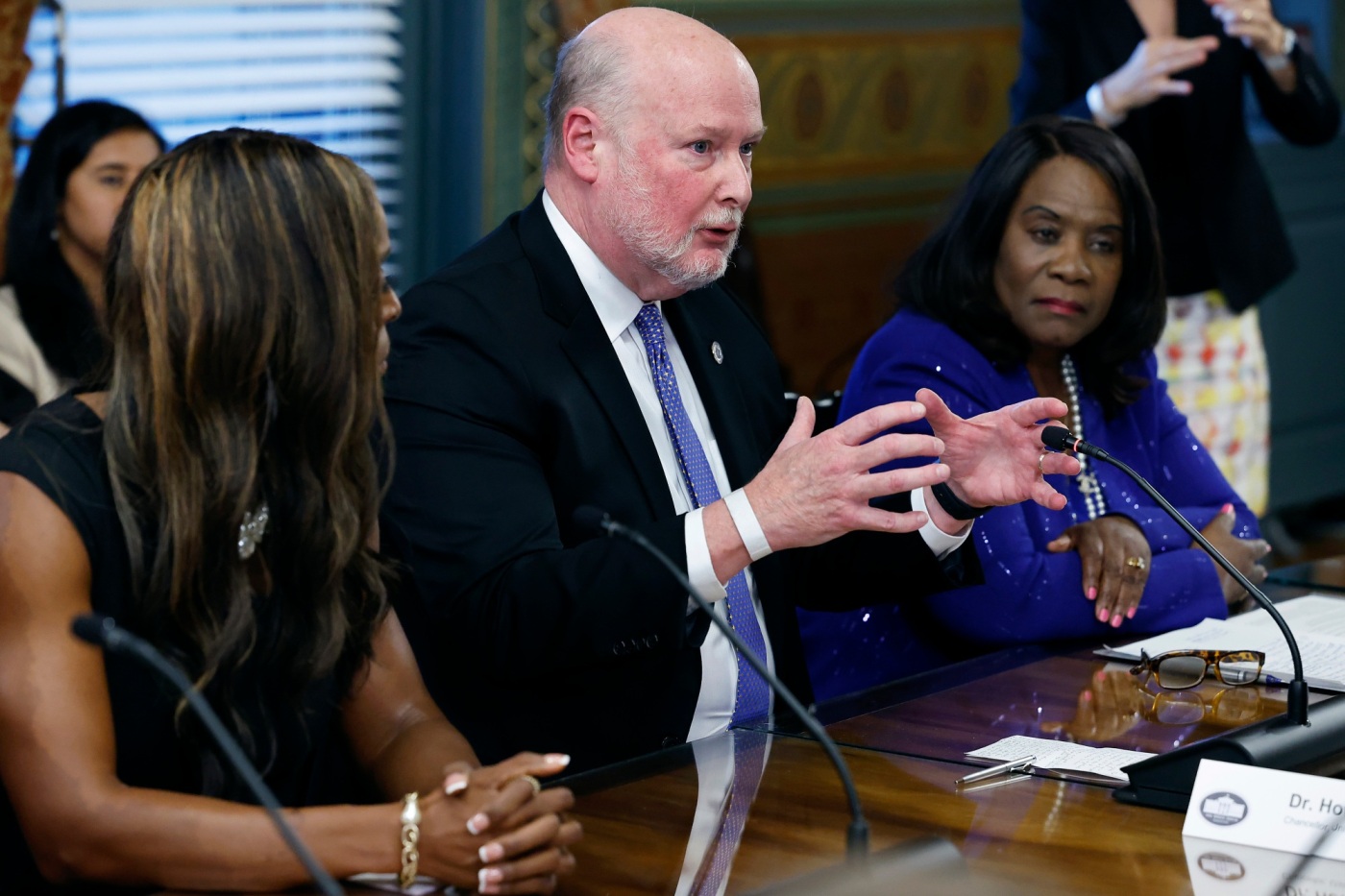While clinics and hospitals seem to be at the epicenter of the U.S. Supreme Court’s decision to overturn Roe v. Wade, universities — including UC Irvine — have also stepped into the spotlight. And the White House is taking notice.
UCI Chancellor Howard Gillman said the recent court decision has brought about “enormous challenges” for higher education institutions, particularly for those that house students from states where abortion services are curtailed or banned completely.
And that’s the message he took to Washington, D.C., this week as he met with Vice President Kamala Harris and other higher education leaders.
“We are now thinking hard about how to extend our support to our community when members of our community are in states that impose restrictions on care,” Gillman said during a press conference after the meeting at the White House, pointing to out-of-state students and patients who take advantage of UCI medical centers and reproductive health care services.
Harris, alongside Education Secretary Miguel Cardona, invited leaders from several colleges and universities across the country to discuss the future of reproductive health care — on and off campus — on Tuesday, Aug. 8.
“The majority of women who will be impacted by this decision are between the ages of 20 and 29,” Harris said. “And so many of them are college age or will be attending college.”
In June, the conservative judges on the nation’s highest court voted to strip away constitutional protections for abortions, paving the way for states to ban the procedure. While California leaders rushed to enshrine further reproductive health care rights, other states quickly enacted bans.
Gillman said he wanted to raise awareness of the increase in people seeking abortion services that campus health care centers or hospitals expect to serve. This surge may require colleges to find more clinical space and personnel, Gillman told the Register.
A law passed in 2019 mandated that California State University and University of California student health centers offer medical abortions by January 2023.
“What are the implications for our out-of-state students who might be coming from care-limiting states that impose strong restrictions and even penalties,” Gillman said, noting that UCI provides a “full range” of reproductive health services for patients. “I think there’s just a lot of uncertainty about that right now.”
And that “uncertainty” continues to loom over the next generation of health care providers who will be offering these services, Gillman said. UCI has a responsibility to ensure that “medical professionals continue to get the training that they need to serve the country.”
But states that outlaw abortion might not be able to fully train medical students on reproductive health care, he said.
Title IX, too, presents “issues that have to get figured out” in a post-Roe world, Gillman said. Title IX is a federal civil rights law that prohibits discrimination in education on the basis of sex.
“If an increasing number of students are required to become parents, do those institutions also have to provide special accommodations for students who are parents in order to ensure they have equal access to education,” Gillman said, noting that many students drop out of college due to pregnancy.
UCI is not alone in tackling these challenges, he said. Leaders from Dartmouth College, City University of New York, Tennessee State University, Oberlin College, Howard University, Gallaudet University, and Reed College were also invited to the Eisenhower Executive Office Building this week where they voiced concerns.
Ted Mitchell, president of the American Council on Education, an organization of leaders from nearly 2,000 higher education institutions across the U.S., said the leaders present represented a “diverse” set of institutions from red and blue states, public and private institutions, and large and small campuses.
The meeting prioritized discussing the common challenges affecting universities in both red and blue states, Gillman said. “And it’s gonna take a long time for us to work through all these issues to understand how best to serve our students, faculty, and staff.”
Related Articles
After public outcry, San Clemente rejects anti-abortion ‘sanctuary for life’ resolution
Georgia says an ‘unborn child’ can be claimed as a dependent on state taxes




